Turkish Protester Gets Body Flopped (Literally) By Police Water Cannon, Purportedly Dies of Injuries
4 posters
Page 1 of 1
 Turkish Protester Gets Body Flopped (Literally) By Police Water Cannon, Purportedly Dies of Injuries
Turkish Protester Gets Body Flopped (Literally) By Police Water Cannon, Purportedly Dies of Injuries
Apparently, some Turkish sites are reporting that he died of head trauma after being sprayed in the face and tumbling over onto the pavement.
http://www.cbc.ca/news/world/story/2013/05/31/turkey-protest.html
Turkish protesters swarm Istanbul square remains defiant as protesters decry government limits on alcohol, public displays of affection
The Associated Press Posted: May 31, 2013 12:15 PM ET Last Updated: Jun 1, 2013 7:52 PM ET Read 110 comments110
Riot police fire tear gas at Turkish protesters in Istanbul in mid-May. Tear-gas confrontations resumed Friday, as people responded to tighter controls over alcohol and public displays of affection. (Osman Orsal/Reuters) Street protests in Turkey3:01
In a scene reminiscent of the Arab Spring, thousands of people on Saturday flooded Istanbul's main square after a crackdown on an anti-government protest turned city streets into a battlefield clouded by tear gas.
Though he offered some concessions to demonstrators, Prime Minister Recep Tayyip Erdogan remained largely defiant in the face of the biggest popular challenge to his power in a decade in office, insisting the protests are undemocratic and illegitimate.
Public anger has flared among urban and secular Turks after police violently broke up an anti-development sit-in in the landmark Taksim Square, with protests spreading to dozens of other cities as demonstrators denounced what they see as Erdogan's increasingly authoritarian style.
As the furious protests entered its second day, police fired tear gas and turned on water cannons at angry demonstrators, some of whom threw rocks and bottles on their march toward Taksim. In an area normally abuzz with tourists, stores were shuttered and protesters fled into luxury hotels for shelter. There were hundreds of arrests and injured.
Turkish authorities later removed barricades and allowed thousands of demonstrators into the square in an effort to calm tension. Sounding defiant even as he bowed to protesters and pulled back police, Erdogan promised to stick to the government's redevelopment plans — which protesters fear will remove one of the few green spaces in the sprawling city.
Only a 'minority' of protesters, Erdogan says
He called the protesters a "minority" that was trying to forcefully impose demands and challenged the opposition that he could easily summon a million people for a government rally.
Protesters threw stones at police in the second day of anti-government demonstrations. (Murad Sezer/Reuters)
"I am not claiming that a government that has received the majority of the votes has limitless powers ... and can do whatever it wants," Erdogan said in a televised speech. "Just as the majority cannot impose its will on the minority, the minority cannot impose its will on the majority."
Under Erdogan's leadership, Turkey has boosted economic growth and raised its international profile, taking a central role in post-Arab Spring politics in the region. Though widely supported by rural and conservative religious Muslims, he remains a divisive figure in mainly secular circles and is criticized for his often abrasive style.
Hundreds of people were injured in the protests, including four people who permanently lost their eyesight after being hit by gas canisters or plastic bullets, Huseyin Demirdizen of Turkey's Doctors' Association told The Associated Press. He said at least two people injured in the protests are in life-threatening condition.
Interior Minister Muammer Guler said more than 900 people were detained during the protests but some of them were released after questioning. He did not say how many were still in custody. The protest had spread to 48 cities, he added.
 Re: Turkish Protester Gets Body Flopped (Literally) By Police Water Cannon, Purportedly Dies of Injuries
Re: Turkish Protester Gets Body Flopped (Literally) By Police Water Cannon, Purportedly Dies of Injuries
damn. he literally flipped over. That's fucked up though.
 Re: Turkish Protester Gets Body Flopped (Literally) By Police Water Cannon, Purportedly Dies of Injuries
Re: Turkish Protester Gets Body Flopped (Literally) By Police Water Cannon, Purportedly Dies of Injuries
Crazy ass shit : 

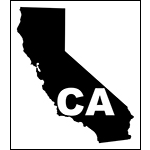
CaliKid- Soldier
- Number of posts : 348
Registration date : 2012-10-20
Location : The BIG IE
 Re: Turkish Protester Gets Body Flopped (Literally) By Police Water Cannon, Purportedly Dies of Injuries
Re: Turkish Protester Gets Body Flopped (Literally) By Police Water Cannon, Purportedly Dies of Injuries
Why did they remove it?

CaliKid- Soldier
- Number of posts : 348
Registration date : 2012-10-20
Location : The BIG IE
 Re: Turkish Protester Gets Body Flopped (Literally) By Police Water Cannon, Purportedly Dies of Injuries
Re: Turkish Protester Gets Body Flopped (Literally) By Police Water Cannon, Purportedly Dies of Injuries
Don't know. I think the poster may have "violated" a YT guideline or something.
 Re: Turkish Protester Gets Body Flopped (Literally) By Police Water Cannon, Purportedly Dies of Injuries
Re: Turkish Protester Gets Body Flopped (Literally) By Police Water Cannon, Purportedly Dies of Injuries
Janitorous Rex wrote:Wait till it comes here!

 WORLD GONE WILD - ANTI-GOVERNMENT CORRUPTION PROTESTS GRIP THE NATIONS
WORLD GONE WILD - ANTI-GOVERNMENT CORRUPTION PROTESTS GRIP THE NATIONS
Biggest protests in 20 years sweep Brazil
Related Video


Brazil cleans up after violent clashes
Tue, Jun 18 2013
Protesters storming the legislative assembly in Brazil





By Todd Benson and Asher Levine
SAO PAULO | Tue Jun 18, 2013 12:58pm EDT
(Reuters) - As many as 200,000 demonstrators marched through the streets of Brazil's biggest cities on Monday in a swelling wave of protest tapping into widespread anger at poor public services, police violence and government corruption.
The marches, organized mostly through snowballing social media campaigns, blocked streets and halted traffic in more than a half-dozen cities, including Sao Paulo, Rio de Janeiro, Belo Horizonte and Brasilia, where demonstrators climbed onto the roof of Brazil's Congress building and then stormed it.
Monday's demonstrations were the latest in a flurry of protests in the past two weeks that have added to growing unease over Brazil's sluggish economy, high inflation and a spurt in violent crime.
While most of the protests unfolded as a festive display of dissent, some demonstrators in Rio threw rocks at police, set fire to a parked car and vandalized the state assembly building. Vandals also destroyed property in the southern city of Porto Alegre.
Around the country, protesters waved Brazilian flags, dancing and chanting slogans such as "The people have awakened" and "Pardon the inconvenience, Brazil is changing."
The epicenter of Monday's march shifted from Sao Paulo, where some 65,000 people took to the streets late in the afternoon, to Rio. There, as protesters gathered throughout the evening, crowds ballooned to 100,000 people, local police said. At least 20,000 more gathered in Belo Horizonte.
The demonstrations are the first time that Brazilians, since a recent decade of steady economic growth, are collectively questioning the status quo.
BIG EVENTS LOOM
The protests have gathered pace as Brazil is hosting the Confederation's Cup, a dry run for next year's World Cup soccer championship. The government hopes these events, along with the 2016 Summer Olympics, will showcase Brazil as an emerging power on the global stage.
Brazil also is gearing up to welcome more than 2 million visitors in July as Pope Francis makes his first foreign trip for a gathering of Catholic youth in Rio.
Contrasting the billions in taxpayer money spent on new stadiums with the shoddy state of Brazil's public services, protesters are using the Confederation's Cup as a counterpoint to amplify their concerns. The tournament got off to shaky start this weekend when police clashed with demonstrators outside stadiums at the opening matches in Brasilia and Rio.
"For many years the government has been feeding corruption. People are demonstrating against the system," said Graciela Caçador, a 28-year-old saleswoman protesting in Sao Paulo. "They spent billions of dollars building stadiums and nothing on education and health."
More protests are being organized for the coming days. It is unclear what specific response from authorities - such as a reduction in the hike of transport fares - would lead the loose collection of organizers across Brazil to consider stopping them.
For President Dilma Rousseff, the demonstrations come at a delicate time, as price increases and lackluster growth begin to loom over an expected run for re-election next year.
Polls show Rousseff still is widely popular, especially among poor and working-class voters, but her approval ratings began to slip in recent weeks for the first time since taking office in 2011. Rousseff was booed at Saturday's Confederations Cup opener as protesters gathered outside.
Through a spokeswoman, Rousseff called the protests "legitimate" and said peaceful demonstrations are "part of democracy." The president, a leftist guerrilla as a young woman, also said that it was "befitting of youth to protest."
WIDE ARRAY OF GRIEVANCES
Some were baffled by the protests in a country where unemployment remains near record lows, even after more than two years of tepid economic growth.
"What are they going to do - march every day?" asked Cristina, a 43-year-old cashier, who declined to give her surname, peeking out at the demonstration from behind the curtain of a closed Sao Paulo butcher shop. She said corruption and other age-old ills in Brazil are unlikely to change soon.
The marches began this month with an isolated protest in Sao Paulo against a small increase in bus and subway fares. The demonstrations initially drew the scorn of many middle-class Brazilians after protesters vandalized storefronts, subway stations and buses on one of the city's main avenues.
The movement quickly gained support and spread to other cities as police used heavy-handed tactics to quell the demonstrations. The biggest crackdown happened on Thursday in Sao Paulo when police fired rubber bullets and tear gas in clashes that injured more than 100 people, including 15 journalists, some of whom said they were deliberately targeted.
Other common grievances at Monday's marches included corruption and the inadequate and overcrowded public transportation networks that Brazilians cope with daily.
POLICE SHOW RESTRAINT
The harsh police reaction to last week's protests touched a nerve in Brazil, which endured two decades of political repression under a military dictatorship that ended in 1985. It also added to doubts about whether Brazil's police forces would be ready for next year's World Cup.
The uproar following last week's crackdown prompted Sao Paulo state Governor Geraldo Alckmin, who first described the protesters as "troublemakers" and "vandals," to order police to allow Monday's march to proceed and not to use rubber bullets.
The protests are shaping up as a major political challenge for Alckmin, a former presidential candidate, and Sao Paulo's new mayor, Fernando Haddad, a rising star in the left-leaning Workers' Party that has governed Brazil for the past decade. Haddad invited protest leaders to meet Tuesday morning, but has so far balked at talk of a bus fare reduction.
The resonance of the demonstrations underscores what economists say will be a challenge for Rousseff and other Brazilian leaders in the years ahead: providing public services to meet the demands of the growing middle class.
"Voters are likely to be increasingly disgruntled on a range of public services in a lower growth environment," Christopher Garman, a political analyst at the Eurasia Group, wrote in a report.
(Additional reporting by Esteban Israel and Eduardo Simões; Editing by Paulo Prada)
Related Video

Brazil cleans up after violent clashes
Tue, Jun 18 2013
- Hundreds of thousands march in Brazil
Protesters storming the legislative assembly in Brazil


By Todd Benson and Asher Levine
SAO PAULO | Tue Jun 18, 2013 12:58pm EDT
(Reuters) - As many as 200,000 demonstrators marched through the streets of Brazil's biggest cities on Monday in a swelling wave of protest tapping into widespread anger at poor public services, police violence and government corruption.
The marches, organized mostly through snowballing social media campaigns, blocked streets and halted traffic in more than a half-dozen cities, including Sao Paulo, Rio de Janeiro, Belo Horizonte and Brasilia, where demonstrators climbed onto the roof of Brazil's Congress building and then stormed it.
Monday's demonstrations were the latest in a flurry of protests in the past two weeks that have added to growing unease over Brazil's sluggish economy, high inflation and a spurt in violent crime.
While most of the protests unfolded as a festive display of dissent, some demonstrators in Rio threw rocks at police, set fire to a parked car and vandalized the state assembly building. Vandals also destroyed property in the southern city of Porto Alegre.
Around the country, protesters waved Brazilian flags, dancing and chanting slogans such as "The people have awakened" and "Pardon the inconvenience, Brazil is changing."
The epicenter of Monday's march shifted from Sao Paulo, where some 65,000 people took to the streets late in the afternoon, to Rio. There, as protesters gathered throughout the evening, crowds ballooned to 100,000 people, local police said. At least 20,000 more gathered in Belo Horizonte.
The demonstrations are the first time that Brazilians, since a recent decade of steady economic growth, are collectively questioning the status quo.
BIG EVENTS LOOM
The protests have gathered pace as Brazil is hosting the Confederation's Cup, a dry run for next year's World Cup soccer championship. The government hopes these events, along with the 2016 Summer Olympics, will showcase Brazil as an emerging power on the global stage.
Brazil also is gearing up to welcome more than 2 million visitors in July as Pope Francis makes his first foreign trip for a gathering of Catholic youth in Rio.
Contrasting the billions in taxpayer money spent on new stadiums with the shoddy state of Brazil's public services, protesters are using the Confederation's Cup as a counterpoint to amplify their concerns. The tournament got off to shaky start this weekend when police clashed with demonstrators outside stadiums at the opening matches in Brasilia and Rio.
"For many years the government has been feeding corruption. People are demonstrating against the system," said Graciela Caçador, a 28-year-old saleswoman protesting in Sao Paulo. "They spent billions of dollars building stadiums and nothing on education and health."
More protests are being organized for the coming days. It is unclear what specific response from authorities - such as a reduction in the hike of transport fares - would lead the loose collection of organizers across Brazil to consider stopping them.
For President Dilma Rousseff, the demonstrations come at a delicate time, as price increases and lackluster growth begin to loom over an expected run for re-election next year.
Polls show Rousseff still is widely popular, especially among poor and working-class voters, but her approval ratings began to slip in recent weeks for the first time since taking office in 2011. Rousseff was booed at Saturday's Confederations Cup opener as protesters gathered outside.
Through a spokeswoman, Rousseff called the protests "legitimate" and said peaceful demonstrations are "part of democracy." The president, a leftist guerrilla as a young woman, also said that it was "befitting of youth to protest."
WIDE ARRAY OF GRIEVANCES
Some were baffled by the protests in a country where unemployment remains near record lows, even after more than two years of tepid economic growth.
"What are they going to do - march every day?" asked Cristina, a 43-year-old cashier, who declined to give her surname, peeking out at the demonstration from behind the curtain of a closed Sao Paulo butcher shop. She said corruption and other age-old ills in Brazil are unlikely to change soon.
The marches began this month with an isolated protest in Sao Paulo against a small increase in bus and subway fares. The demonstrations initially drew the scorn of many middle-class Brazilians after protesters vandalized storefronts, subway stations and buses on one of the city's main avenues.
The movement quickly gained support and spread to other cities as police used heavy-handed tactics to quell the demonstrations. The biggest crackdown happened on Thursday in Sao Paulo when police fired rubber bullets and tear gas in clashes that injured more than 100 people, including 15 journalists, some of whom said they were deliberately targeted.
Other common grievances at Monday's marches included corruption and the inadequate and overcrowded public transportation networks that Brazilians cope with daily.
POLICE SHOW RESTRAINT
The harsh police reaction to last week's protests touched a nerve in Brazil, which endured two decades of political repression under a military dictatorship that ended in 1985. It also added to doubts about whether Brazil's police forces would be ready for next year's World Cup.
The uproar following last week's crackdown prompted Sao Paulo state Governor Geraldo Alckmin, who first described the protesters as "troublemakers" and "vandals," to order police to allow Monday's march to proceed and not to use rubber bullets.
The protests are shaping up as a major political challenge for Alckmin, a former presidential candidate, and Sao Paulo's new mayor, Fernando Haddad, a rising star in the left-leaning Workers' Party that has governed Brazil for the past decade. Haddad invited protest leaders to meet Tuesday morning, but has so far balked at talk of a bus fare reduction.
The resonance of the demonstrations underscores what economists say will be a challenge for Rousseff and other Brazilian leaders in the years ahead: providing public services to meet the demands of the growing middle class.
"Voters are likely to be increasingly disgruntled on a range of public services in a lower growth environment," Christopher Garman, a political analyst at the Eurasia Group, wrote in a report.
(Additional reporting by Esteban Israel and Eduardo Simões; Editing by Paulo Prada)
Last edited by 1ManForum on Wed Jun 19, 2013 12:17 pm; edited 12 times in total
 Re: Turkish Protester Gets Body Flopped (Literally) By Police Water Cannon, Purportedly Dies of Injuries
Re: Turkish Protester Gets Body Flopped (Literally) By Police Water Cannon, Purportedly Dies of Injuries
It wont happen here because people are too pussy to do anything.


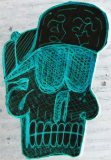
W.Devil- UnderBoss
- Number of posts : 2977
Registration date : 2008-01-28
 Re: Turkish Protester Gets Body Flopped (Literally) By Police Water Cannon, Purportedly Dies of Injuries
Re: Turkish Protester Gets Body Flopped (Literally) By Police Water Cannon, Purportedly Dies of Injuries
W.Devil wrote:It wont happen here because people are too pussy to do anything.
While I think fear is a contributing deterrent here, I believe the issue of inaction lies primarily with the collective ignorance of American society. How could a population take action to solving an issue(s) without having proper insight of those issues first?
The average American 'joe' knows little to nothing about the likes of the national and global debt problem, government over spending, the continual government infringement and destruction of our constitutional rights, etc, etc. The average American is more concerned with what's airing on prime time television tonight, or what the latest smart phone app is, than they are about governmental issues, lingering problems in the country, or the rest of the world for that matter.
Plainly put; most Americans are completely oblivious and simply don't care about anything that's falls outside of their daily concerns. If most of a population is 'asleep', or simply indifferent about these issues, then little can be expected in the way of change. There is, however, a rapidly growing level of awareness taking place at the moment, and many Americans are starting to see through the bullshit, but again, little is being done in making these concerns known on a large scale. The unfortunate part is that concerned Americans are often equated with being 'unpatriotic', belonging to radical fringe groups, or disconnected 'conspiracy theorists' -- or worse yet, potential terrorists. In actuality, the exact opposite is true.
I don't advocate violence in protests, I'm against that actually, but there does come a time when affirmative action (again, without resorting to violence) IS necessary to spark change. The occupy movement didn't cut it, not by a long shot, but it was a step in the right direction. We need to raise awareness, the movements/campaigns come as a natural by-product of that.
 Re: Turkish Protester Gets Body Flopped (Literally) By Police Water Cannon, Purportedly Dies of Injuries
Re: Turkish Protester Gets Body Flopped (Literally) By Police Water Cannon, Purportedly Dies of Injuries
When I say, ''wait til it comes here'', I'm not necessarily saying the American people will all wake up.
What I am saying is that when this phony economic recovery ends, and when the bills come due, and the government can no longer afford the interest payments on the debt after rates rise due to a weakening dollar, THAT'S when chaos may ensue.
Americans may be asleep and only care about the latest thing on their favorite reality TV show or whatever, but millions of Americans are dependent on food stamps, disability , social security, etc etc, and what happens when prices rise so high that they can no longer afford to buy food or they stop receiving the government checks or get a slash in benefits? When people can no longer buy food, people will take to the streets. It's that simple.
What I am saying is that when this phony economic recovery ends, and when the bills come due, and the government can no longer afford the interest payments on the debt after rates rise due to a weakening dollar, THAT'S when chaos may ensue.
Americans may be asleep and only care about the latest thing on their favorite reality TV show or whatever, but millions of Americans are dependent on food stamps, disability , social security, etc etc, and what happens when prices rise so high that they can no longer afford to buy food or they stop receiving the government checks or get a slash in benefits? When people can no longer buy food, people will take to the streets. It's that simple.
 BREAKING NEWS : NEW PROTESTS EXPLODE IN EGYPT
BREAKING NEWS : NEW PROTESTS EXPLODE IN EGYPT
LIVE FEED (IN EGYPTIAN)
http://www.livestream.com/ontveglive
http://www.livestation.com/en/aljazeera-mubasher
BREAKING: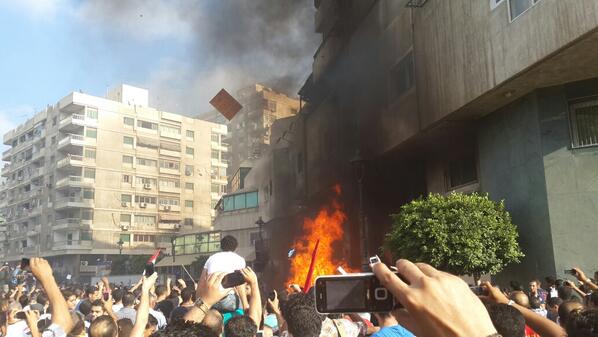
BREAKING PHOTO: Building on fire, reportedly Muslim Brotherhood's HQ in Alexandria, Egypt
UPDATED RT NEWS: UP TO 70 INJURED
http://rt.com/news/protests-morsi-violence-opposition-366/
Tens of thousands of supporters and opponents of President Morsi join protests across Egypt with first clashes with police reported in Alexandria. Many Egyptians feel disappointed by the current economic slump, blaming the government.
Security forces used tear gas to break up clashes between rival protesters in Alexandria, according to MENA news agency. At least 40 people were injured there, reports Ahram Online.
Witnesses tweet that they hear live ammunition and claim that at least one person has been killed; though these reports are yet to be confirmed.
http://rt.com/news/protests-morsi-violence-opposition-366/

(Reuters) - Two people, one an American, were killed when protesters stormed an office of Egypt's ruling Muslim Brotherhood in Alexandria, adding to growing tension ahead of mass rallies aimed at unseating the Islamist president.
A third man was killed and 10 injured in an explosion during a protest in Port Said, at the mouth of the Suez Canal. Police on Saturday said the cause was unclear but protesters, believing it was a bomb, attacked an Islamist party office in the city.
Egypt's leading religious authority warned of "civil war" after violence in the past week that had already left several dead and hundreds injured. They backed President Mohamed Mursi's offer to talk to opposition groups ahead of Sunday's protests.
http://uk.reuters.com/article/2013/06/28...O020130628
http://www.livestream.com/ontveglive
http://www.livestation.com/en/aljazeera-mubasher
BREAKING:

BREAKING PHOTO: Building on fire, reportedly Muslim Brotherhood's HQ in Alexandria, Egypt
UPDATED RT NEWS: UP TO 70 INJURED
http://rt.com/news/protests-morsi-violence-opposition-366/
Tens of thousands of supporters and opponents of President Morsi join protests across Egypt with first clashes with police reported in Alexandria. Many Egyptians feel disappointed by the current economic slump, blaming the government.
Security forces used tear gas to break up clashes between rival protesters in Alexandria, according to MENA news agency. At least 40 people were injured there, reports Ahram Online.
Witnesses tweet that they hear live ammunition and claim that at least one person has been killed; though these reports are yet to be confirmed.
http://rt.com/news/protests-morsi-violence-opposition-366/

(Reuters) - Two people, one an American, were killed when protesters stormed an office of Egypt's ruling Muslim Brotherhood in Alexandria, adding to growing tension ahead of mass rallies aimed at unseating the Islamist president.
A third man was killed and 10 injured in an explosion during a protest in Port Said, at the mouth of the Suez Canal. Police on Saturday said the cause was unclear but protesters, believing it was a bomb, attacked an Islamist party office in the city.
Egypt's leading religious authority warned of "civil war" after violence in the past week that had already left several dead and hundreds injured. They backed President Mohamed Mursi's offer to talk to opposition groups ahead of Sunday's protests.
http://uk.reuters.com/article/2013/06/28...O020130628
 Biggest protest in Egypt’s history
Biggest protest in Egypt’s history


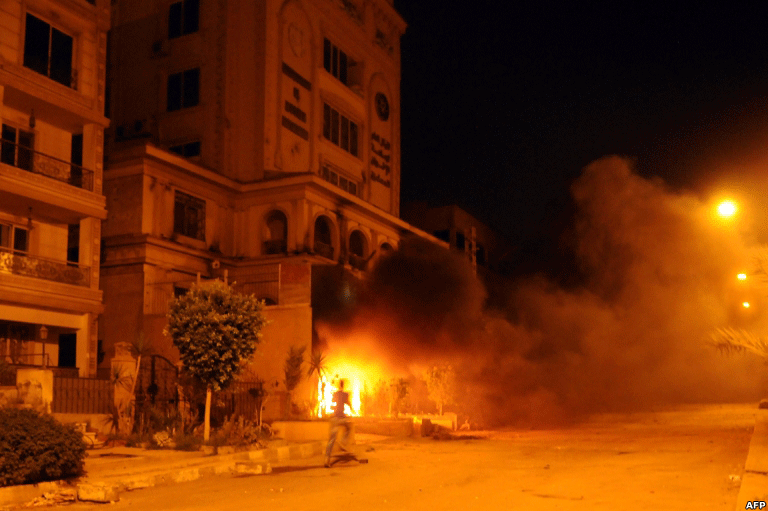
protesters attack Muslim Brotherhood headquarters ^
It appears that the Egyptian people have finally realized that their country was deliberately sabotaged by the powers that be with the forceful ousting of then president Mubarak and the supersession of the puppet government they later received in the form of the Muslim brotherhood. These actions might be a little too late. Egypt, as well as many of the other countries which formed the "Arab Spring", are now in shambles. Their economies have plummeted, their governments are on the verge of implosion, and their societies fully destabilized.
----------------------------
Reuters) - Millions of Egyptians flooded into the streets on the first anniversary of Islamist President Mohamed Mursi's inauguration on Sunday to demand that he resign in the biggest challenge so far to rule by his Muslim Brotherhood.
Waving national flags and chanting "Get out!", a crowd of nearly 500,000 massed in and around Cairo's central Tahrir Square in by far the largest demonstration since the 2011 uprising that overthrew Mursi's predecessor, Hosni Mubarak.
"The people want the fall of the regime!" they shouted, echoing the Arab Spring rallying cry that brought down Mubarak - this time yelling it not against an ageing dictator but against the first elected leader in Egypt's 5,000-year recorded history.
Huge protest rallies continued late into the night in a mostly festive atmosphere.
While the main protests were peaceful, five people were shot dead in clashes in the Nile valley towns of Assiut and Beni Suef and the oasis town of Fayoum. The Health Ministry said more than 200 were injured in clashes in several provincial towns.
A military source said as many as 14 million people in this nation of 84 million took part in Sunday's demonstrations in sweltering heat. There was no independent way to verify that estimate, which seemed implausibly high, but the armed forces used helicopters to monitor the crowds.
Militants hurling petrol bombs and rocks and firing shotguns attacked the Brotherhood's national headquarters in a Cairo suburb, sending flames billowing from the main entrance. There was no sign of police protection or fire fighters.
The liberal opposition National Salvation Front coalition declared victory in what it styled "Revolutionary Communique No. 1" saying the masses had "confirmed the downfall of the regime of Mohamed Mursi and the Muslim Brotherhood".
Mursi's official spokesman, Omar Amer, said the president had admitted mistakes and was in the process of fixing them. He repeated Mursi's offer of dialogue but made clear he had no intention of resigning.
Organizers called on the demonstrators to keep occupying central squares in every city until Mursi quits and to blockade the only functioning house of parliament.
The Tahrir crowd roared approval when an army helicopter hovering overhead dropped Egyptian flags on the protesters. The military source said the move was intended to encourage patriotism and was not a gesture of political support.
"COUP ATTEMPT"?
Many demonstrators bellowed their anger at the Brotherhood, which they accuse of hijacking Egypt's revolution and using electoral victories to monopolize power and impose Islamic law.
Others, including some who said they had voted for Mursi, have been alienated by a deepening economic crisis and worsening personal security, aggravated by a political deadlock over which he has presided.
The veteran leaders of Egypt's secular, liberal and left-wing opposition, including former chief of the U.N. nuclear watchdog Mohamed ElBaradei and leftist presidential candidate Hamdeen Sabahi, joined protest marches in Cairo.
Hundreds of thousands of protesters marched through the Mediterranean port of Alexandria, Egypt's second city, and large protests were reported in at least 20 towns around the country.
Mursi, an engineering professor propelled from obscurity to power by the Brotherhood, monitored events from the heavily guarded Qubba presidential palace but did not appear in public.
A senior Brotherhood politician, Essam El-Erian, denounced the protests as a "coup attempt".
In a statement on the group's website, he challenged the opposition to test public opinion in parliamentary elections instead of "simply massing people in violent demonstrations, thuggery or shedding the precious blood of Egyptians".
The leader of the second largest Islamist party, Younis Makhyoun of the Salafist Nour party, urged Mursi to make concessions to avert bloodshed and presented himself in an interview with Reuters as a potential mediator.
LEGITIMACY
Security sources said demonstrators targeted offices of the Brotherhood and its political party across the country after a week of sporadic violence in which hundreds of people have been hurt and several killed, including an American student.
Tens of thousands of Mursi supporters congregated outside a Cairo mosque not far from the main presidential palace but made no contact with the anti-government protesters.
Interviewed by a British newspaper, Mursi voiced his resolve to ride out what he sees as an undemocratic attack on his electoral legitimacy. He offered to revise the Islamist-inspired constitution, saying clauses on religious authority, which fuelled liberal resentment, were not his choice.
He made a similar offer last week, after the head of the army issued a strong call for politicians to compromise. But the opposition dismissed it as too little to late. They hope Mursi will resign in the face of the large numbers on the streets.
Some Egyptians believe the army may force the president's hand, if not to quit then at least to make substantial concessions to the opposition.
Chief-of-staff and Defence Minister General Abdel Fattah al-Sisi was following the situation from a special operations room, the military source said.
In Cairo, marchers stopped to shake hands and take pictures with soldiers guarding key buildings. At least six high-ranking police officers took to the Tahrir Square podium in support of the demonstrators, a Reuters witness said.
Mursi and the Brotherhood hope the protests will fizzle as previous outbursts did in December and January. If not, some form of compromise, possibly arbitrated by the army, may be on the cards.
VIOLENCE
Both sides insist they plan no violence but accuse the other - and agents provocateurs from the old regime - of planning it.
The U.S.-equipped army shows little sign of wanting power but warned last week it may have to step in if deadlocked politicians let violence slip out of control.
U.S. President Barack Obama called for dialogue and warned that trouble in the most populous Arab nation could unsettle an already turbulent region. Washington has evacuated non-essential personnel and reinforced security at diplomatic missions.
In his interview with Britain's Guardian newspaper, Mursi repeated accusations that what he sees as entrenched interests from the Mubarak era are plotting to foil his attempt to govern. He dismissed the demands that he give up and resign.
If that became the norm, he said, "well, there will be people or opponents opposing the new president too, and a week or a month later, they will ask him to step down".
Liberal leaders say nearly half the voting population - 22 million people - has signed a petition calling for new elections, although there is no obvious challenger to Mursi.
Religious authorities have warned of "civil war".
The army, half a million strong and financed by Washington since it backed a peace treaty with Israel three decades ago, says it has deployed to protect key installations.
Among these is the Suez Canal. Cities along the waterway vital to global trade are bastions of anti-government sentiment. A bomb killed a protester in Port Said on Friday. A police general was gunned down in Sinai, close to the Israeli border.
(Reporting by Asma Alsharif, Alexander Dziadosz, Shaimaa Fayed, Maggie Fick, Alastair Macdonald, Shadia Nasralla, Tom Perry, Yasmine Saleh, Paul Taylor and Patrick Werr in Cairo; Yusri Mohamed in Ismailia and Abdelrahman Youssef in Alexandria.; Writing by Alastair Macdonald and Paul Taylor; Editing by Peter Graff and Christopher Wilson)
 Similar topics
Similar topics» mike brown gone, got body flopped
» Man shot on Wall Avenue in SB dies of injuries
» San Bernardino man dies from gunshot injuries sustained March 10
» police arrest man in connection with a body found in hole (SCO Hood)
» Eminem vs Nick Cannon......yes...i said Nick cannon! LOL!
» Man shot on Wall Avenue in SB dies of injuries
» San Bernardino man dies from gunshot injuries sustained March 10
» police arrest man in connection with a body found in hole (SCO Hood)
» Eminem vs Nick Cannon......yes...i said Nick cannon! LOL!
Page 1 of 1
Permissions in this forum:
You cannot reply to topics in this forum
 Home
Home









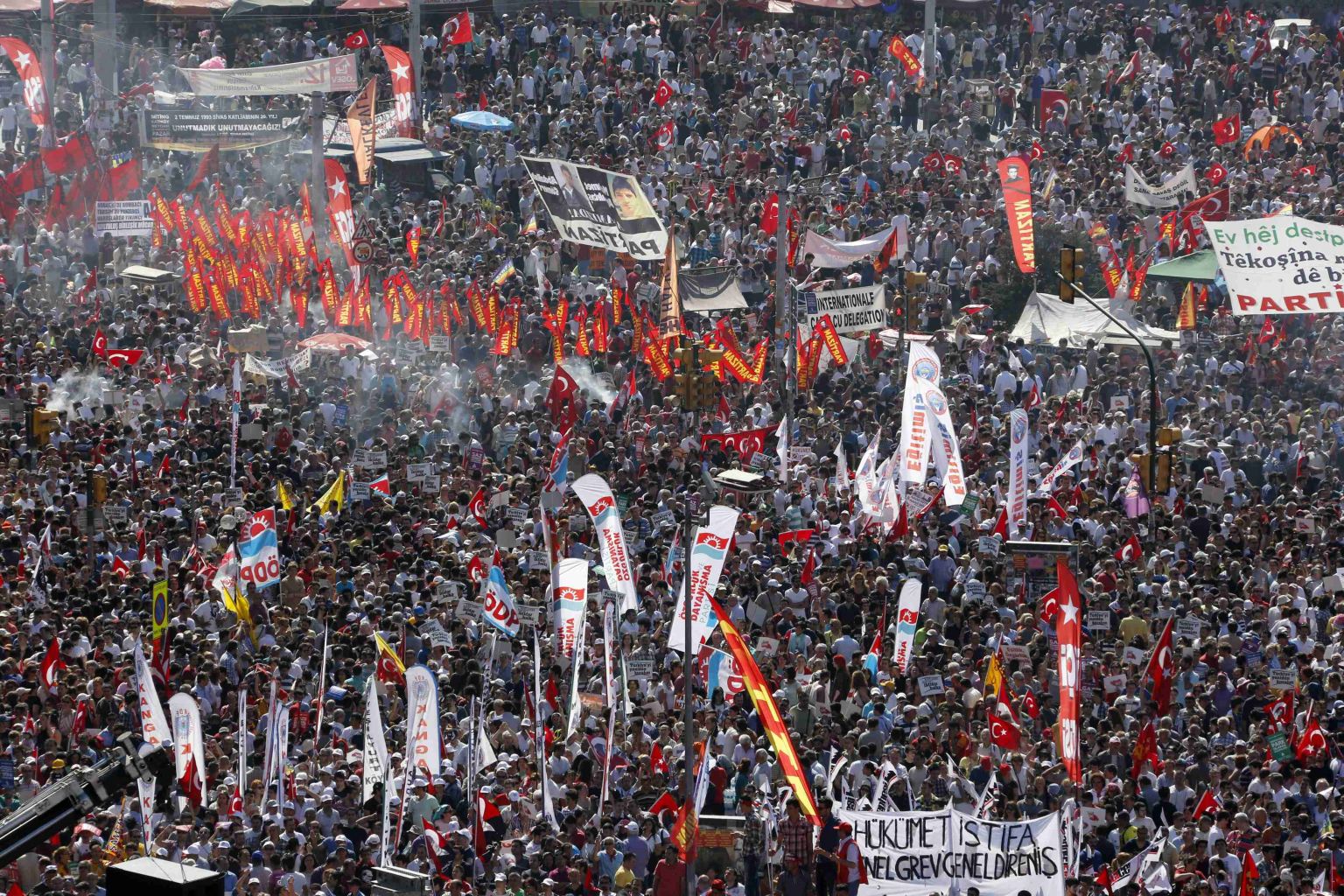

_t607.JPG)







» Inland Empire Gang List
» Perris Street Gangs
» SOUTHSIDE COLTON LA PALOMA PARK LOKOS Ost GANG
» MCP13 WHO ARE THEY?
» Gangs that have died out
» Fontana pt2
» Inactive Fontana gangs
» IE gangs in the 90s